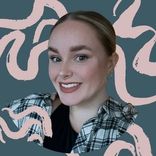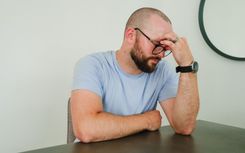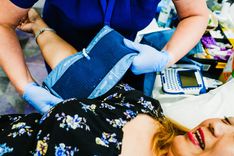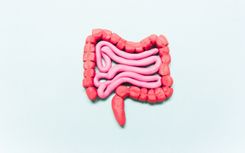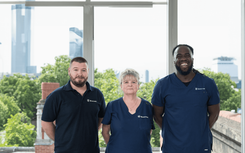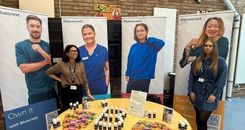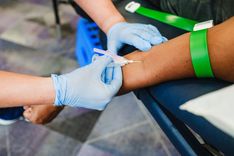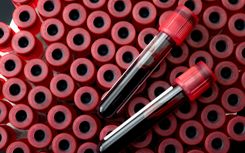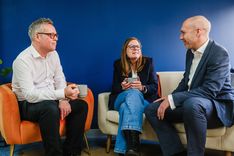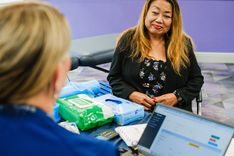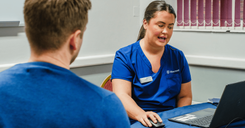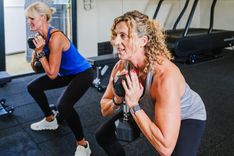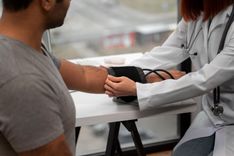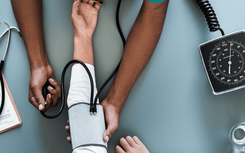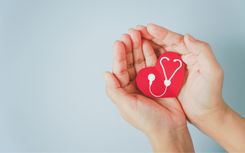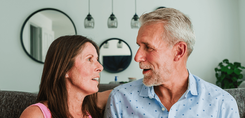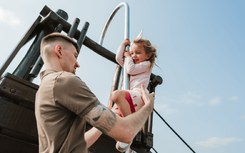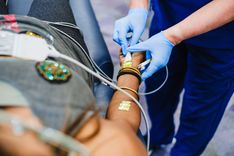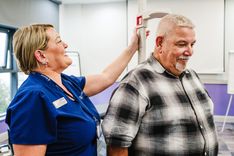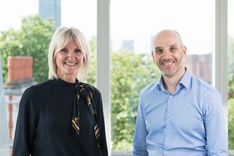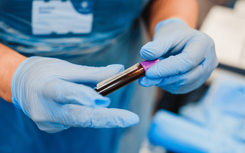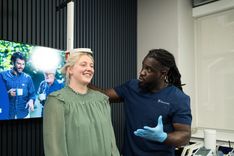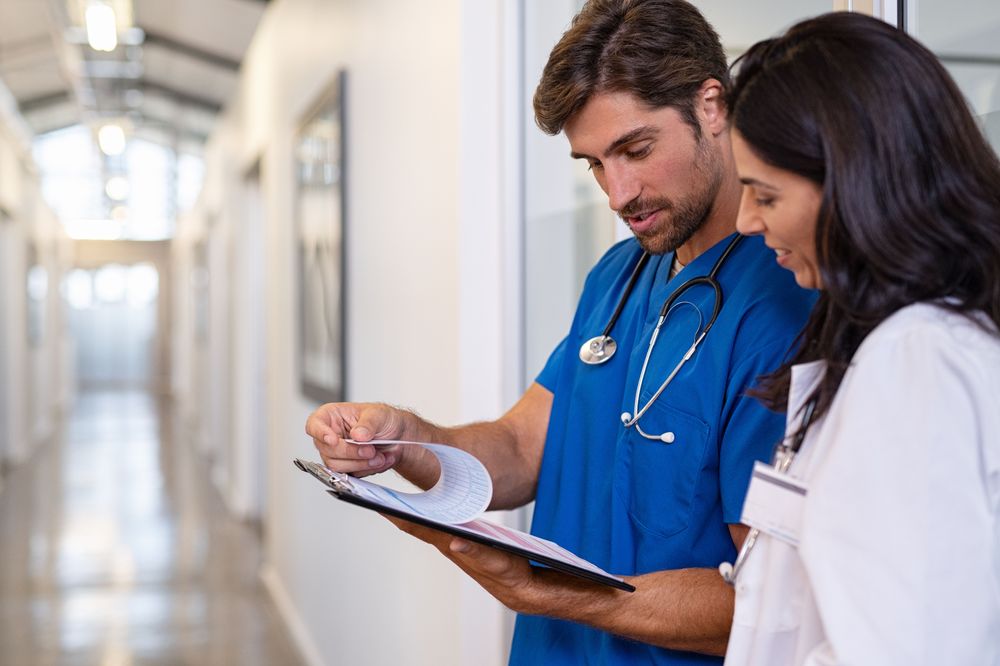
Thyroid cancer awareness - Tia's story
As part of our August awareness topic of cancer we spoke with a 27-year-old cancer survivor all about her experience – from symptoms to remission and everything in between.
I was so blasé about it, it never crossed my mind that it would be cancer
Just before her birthday, Tia Martin got the news no teenager ever expects “I was diagnosed with stage 2 Papillary Thyroid cancer” she went on to tell us how her doctors had told her she was the youngest person in the UK, on record at that time, to be diagnosed with thyroid cancer.
What symptoms were you experiencing?
“The only real symptom I had that raised concern was a golf ball sized lump in the front of my neck.”
Around 2 weeks after finding the lump Tia went to her GP, after some encouragement from her mum, and the doctor thought it was probably a case of glandular fever. A blood test was carried out for glandular fever and when that came back negative, Tia was happy to go on monitoring it under the GP’s supervision.
In her early teenage years Tia had struggled with a few different issues, including panic attacks and thinning hair, but nothing that struck her as concerning. It wasn’t until she was diagnosed that she was told these could have actually been symptoms and she had had the cancer for at least 2 years prior to diagnosis.
After hearing about the symptoms another GP encouraged her to get a second opinion and run some additional tests, believing it could actually be a thyroid problem due to her experiencing anxiety, hair thinning and sweats – especially since there is a family history of thyroid conditions.
What tests did they do next?
After being encouraged to get a second opinion Tia was referred for an ultrasound and biopsy and also had a CT scan. “I never thought it was going to be cancer. My mum told me years later that when she realised they couldn’t pierce the mass in the biopsy, she knew straight away that it was cancer.”
About 2 weeks later she walked into her consultation to get her results. “I still had no idea it was going to be cancer; it was all a bit of a blur. It sounds horrible but at that age you think of cancer, and you think of older people. I struggled to process the news, it probably didn’t really hit me until after the surgery.”
She went on to tell us how at this point they still weren’t 100% sure if it was just in her thyroid or if it was lymphoma, which was the part that scared her. “At that age you don’t really know much about cancer, and it wasn’t until I started watching documentaries and I saw everything with Jade Goody that I was like ‘Oh actually, you can get cancer at any age’.” After the initial GP appointment in the May, Tia underwent surgery later that year in the October.
What treatment did you have after surgery?
After surgery, Tia had to go for Radioactive Iodine Treatment. This involved a strict iodine-free diet 2 weeks prior to treatment “I couldn’t have dairy, salt, processed food, green vegetables among a lot of other stuff because the iodine triggered something in the cells and they needed to make sure it was being concentrated in the cancer rather than the rest of my body.”
The Radioactive Iodine Treatment involved being placed in a lead lined room and having to ingest a capsule, “I would be in this room for 4 days at a time and I did 5 rounds of this treatment over the span of 18 months.” She recalls the treatment making her really sick and drying up her saliva glands “I had to eat sweets constantly to trigger my saliva – there are so many sweets I can’t touch now because they make me feel ill just thinking about them.”
Being in the lead lined room means there was no internet, phone signal or tv, “I found it quite difficult to be in there with just my thoughts, luckily I was allowed a laptop in with me with about 65 old school DVD’s.”
What feelings did you experience throughout your treatment?
“I dreaded it, every time I would hope it would be the last round of treatment. It was like a prison cell, I couldn’t see anyone because it would put them at risk – my food was given to me through a little serving hatch.”
Tia noted how the isolation was the big feeling, even after coming home having to isolate in her room for 4-5 days before coming into contact with anyone. “Honestly, I went off the rails a bit and was using alcohol to numb the feelings because I never really dealt with the emotions at diagnosis or really process any of it.”
“Treatment wasn’t catered to young adults because it wasn’t normal for people that young to be in that situation, the treatment was built for older people. I feel like I missed out on some of the support because they weren’t sure how they should be treating me because of my age and the type of cancer.”
How has your diagnosis and treatment impacted your life?
Tia commented how it has changed her everyday life now having to take medication and going from a healthy kid to being in and out of hospital and having blood tests every 2-3 months.
Although it was and still is such a hard thing to go through, she mentioned how there was actually a positive to come out of the whole situation, “I would say my self-confidence was positively impacted. I was always a shy and introverted person, despite playing football, and always worried what others thought and going through this really made me think ‘What am I doing worrying about what others think when I could’ve potentially died at a young age?!’”
Is there anything you wish people would have known?
“It really bugged me, and it still does now, when people refer to thyroid cancer as ‘the good cancer’. The idea that because the survival rate is quite high, people aren’t so concerned – I think there is a real lack of knowledge about it.”
She spoke about how there were times when her mood would drop because of the medication and how people weren’t aware of the effects so that made it quite difficult but how her family and friends were really good and there to support her.
When asked if she felt there was still a lack of knowledge around thyroid cancer she said, “Understanding has gotten better around thyroid cancer because more people have experienced it now, 11 years ago it wasn’t as common, so people knew less about it.”
Was there anything that really helped you during your diagnosis, treatment and beyond?
“I was added to a Facebook group with others diagnosed with thyroid cancer by the TYA CLIC sergeant team, that really helped to be in a group of people who really understood what I was going through.”
She also went on to say “People are too scared to ask questions, but I feel like it is better to talk about it rather than walking on eggshells around the topic. 9 times out of 10 people are happy to talk about it. Now, I don’t really talk about it with anyone, so it is actually quite nice to have an open conversation about it".
How is your cancer and health monitored now and why is it important to keep on top of your health?
“I will now be on Thyroxin for the rest of my life to act as my thyroid and keep the cancer cells from producing. You don’t realise how much your thyroid does for your body and how many hormones it produces until you have something wrong with it.”
She spoke about how she still has her yearly appointments with both her Endocrinologist and Oncologist so still has that contact and is kept in the loop on how she is getting on.
Monitoring your health, especially for someone in Tia’s position is key to ensure treatment is working and any issues are caught as early as possible. “My TSH and Thyroid Globulin levels were fluctuating quite a bit, this meant that they had to increase the dose of Thyroxin that I was on. I am now on the highest dosage I can have though, so luckily in my most recent blood test it showed that they have finally dropped – if they continue to rise then I will have to go through treatment again.”
What advice would you give to someone who is unsure if they should get their health checked?
“Just go. You know your own body best, so you are better off going and getting checked. Be adamant and stand your ground.”
Bluecrest health assessments
Our health assessments can help you to live health confident, allowing you to detect and monitor any abnormalities or changes in your health. With access to a 24/7 GP helpline, you can discuss any health questions with a registered GP.
Bluecrest have helped a number of people across the UK and Ireland detect early signs of cancer, allowing them to access the help and treatment they needed. You can read a few of their experiences by clicking the links below.
Want to find out insights about your health? Book your health assessment today!
To book your health assessment, click here
For Vitality customers, book here.
For Benenden customers, book here.
Need help? You can reach out to our corporate team on 0808 168 9219
